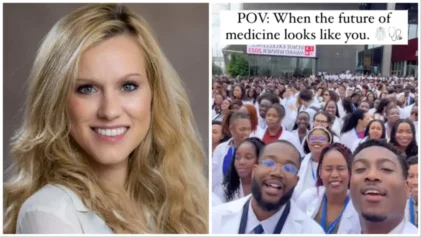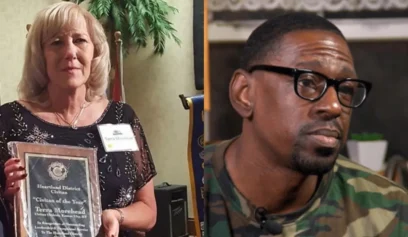“Teen-Agers: A Newsweek Survey of What They’re Really Like” hit news stands all across America in 1966. The Newsweek cover story explored teenagers’ views on everything from their parents, to their futures, and the world. Fast forward 50 years and the publication is revisiting the concept, identifying what has changed and what has stayed the same among American teens.
According to Newsweek, the original 1966 article was based on a survey of almost 800 teens across the U.S. and featured in-depth profiles of six teens, including a Black teen growing up in Chicago, a girl in Malibu, and a teen boy living on a farm in Iowa.
Newsweek’s updated report, titled “The State of the American Teenager,” offers readers insight “into a generation that’s plugged in, politically aware, optimistic about their futures yet anxious about their country.” The publication reports that 68 percent of teens believe the country is on the wrong track, while over half of teens now support gun control (55 percent) and gay marriage (62 percent). Pop culture icons from Beyoncé to Taylor Swift, and support of the death penalty were also explored, among other things.
But the study also revealed that race and racial discrimination are still pressing issues for American teens today. Per the 1966 report, 44 percent of teens believed that racial discrimination would continue to be a problem for their generation. Now, that percentage has nearly doubled (82 percent), indicating that teens share similar sentiments about racial bias with teens from 50 years ago. According to Newsweek, the perspectives of Black teens are even more worrisome, as 91 percent of them believe that racial discrimination will never go away. That percentage is up 33 percent from 1966.
“Recent headlines — police-involved shootings of unarmed Black men, the Black Lives Matter movement, Donald Trump’s xenophobic politics — reveal a country deeply divided on race, with seemingly little hope for reconciliation,” the news publication reports.
Newsweek’s survey also found that African-American teenagers are more aware of gun violence and fatal shootings of innocent people by police than white or Latino teens are. They’re more likely to worry that they themselves will also fall victim to such shootings.
Co-author of “The Psychology of Black Boys and Adolescents,” Dr. Warren Spielberg explained to NBCBLK that teens who are feeling discouraged or dispirited need to seek help from their parents, schools, or places that provide mental health services.
“We have to help people see the racism in themselves,” Spielberg said. “We have to train teachers and help boys be boys. The macho construct is dangerous and anti-intellectual. We have to help boys know they can be dependent and ask for help.”
NBC News points out that although discrimination and race-based violence against Blacks ran rampant in the 1960s, protests and anti-discrimination laws passed as a result of the Civil Rights Movement gave people of all races a glimmer of hope about the future.
“There was a sense of hopefulness — not just with African-Americans but with all people — that the country was generally on the right track,” says Arun Venugopal, host of Micropolis, a semi-regular show on race and identity broadcast on WNYC.org. “Economically, the country was doing really well. A lot of jobs were being created. If you were young, there was a sense that you had a good chance of being gainfully employed. Minimum wage took you a lot further then than it does today.”
Now, amid the age of technology and rise of movements like Black Lives Matter, images of racial tension between police and communities of color are readily accessible to millions of people.
Dr. Kirkland Vaughans, who is also a co-author of “The Psychology of Black Boys and Adolescents,” described Newsweek’s study as comprehensive and potentially informative for therapists who treat American youth, NBC News reports.
“It goes right to the angst of American adolescents,” he said.
Dr. Vaughans also asserted that joblessness and the criminal-industrial complex have contributed to today’s societal issues.
“Back in the ’60s, we had black poverty, but we also had black jobs,” Vaughans explained to Newsweek. “You can be poor, but as long as you have someplace to go, you have hope. Joblessness has grown and the criminal-industrial complex has grown.”
Newsweek’s extensive survey reveals that even during a time where an African-American president runs the free world, teens are still growing up in a society where racial discrimination creeps “into the crevices of everyday life in new and sinister ways.”


